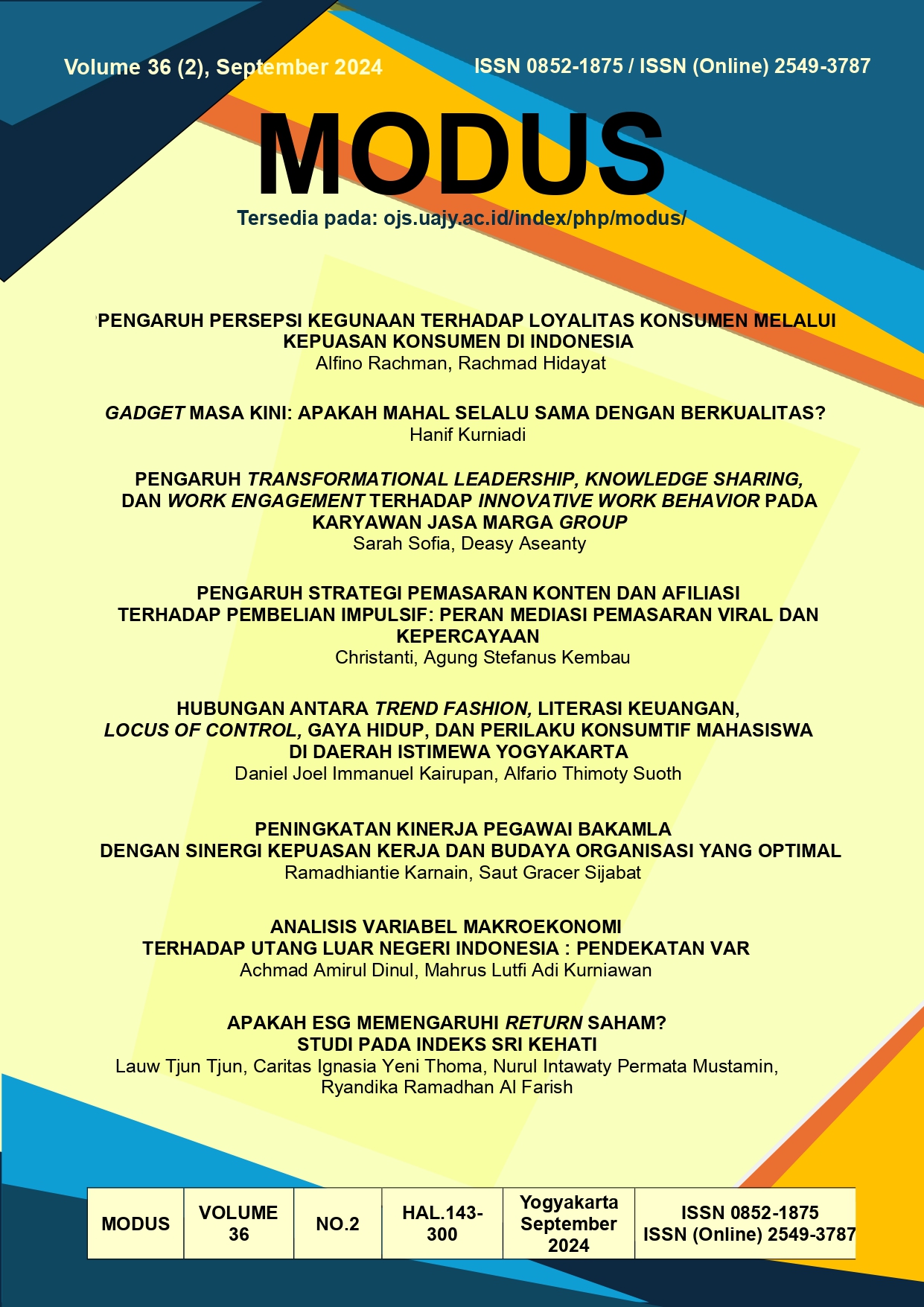ANALISIS VARIABEL MAKROEKONOMI TERHADAP UTANG LUAR NEGERI INDONESIA: PENDEKATAN VAR
DOI:
https://doi.org/10.24002/modus.v36i2.8910Abstract
By undertaking development, a country may accelerate its economic growth and overcome various obstacles. Foreign debt occurs as a part of the policy to fund national projects, to cover budget deficit, and to stimulate economic growth. This study aims to analyze the effects of interest rate, Gross Domestic Product (GDP), exchange rate, and export on foreign debt in the 1970-2021 period. Secondary data were derived from the International Monetary Fund, World Bank, Bank Indonesia, Statistics Indonesia (BPS), and the Ministry of Finance. The variables analyzed in this study were foreign debt, GDP, export, interest rate, and exchange rate from 1970 to 2021. The Vector Autoregressive (VAR) method was used to identify the shock of independent variables responded by foreign debt as the dependent variable. The results showed that there was a positive response from foreign debt to the changes in interest rate and GDP, and a negative response to the changes in exchange rates and export. The improvement in macroeconomic conditions, especially the stability of exchange rate and the increase of export, may improve the trust of creditors and the sustainability of foreign debt.
Keywords: foreign debt; exchange rate; export; VAR.
Dengan melakukan pembangunan, negara dapat mempercepat pertumbuhan ekonomi dan mengatasi berbagai kendala pembangunan. Utang Luar Negeri (ULN) muncul sebagai kebijakan untuk membiayai proyek nasional, menutup defisit anggaran dan menggerakkan roda perekonomian. Tujuan penelitian ini adalah menganalisis pengaruh suku bunga, Pendapatan Domestik Bruto (PDB), kurs, dan ekspor terhadap ULN pada periode 1970-2021. Data sekunder yang digunakan berasal dari sumber seperti International Monetary Fund (IMF), World Bank, Bank Indonesia, Badan Pusat Statistik (BPS), dan Kementerian Keuangan. Variabel yang dianalisis meliputi ULN, PDB, ekspor, suku bunga, dan kurs dalam rentang waktu 1970 hingga 2021. Penelitian ini menggunakan metode Vector Autoregressive (VAR) untuk mengidentifikasi guncangan dari variabel independen yang direspon oleh ULN sebagai variabel dependen. Hasil penelitian menunjukkan bahwa terdapat respon positif dari ULN terhadap gejolak suku bunga dan PDB, dan respon negatif terhadap gejolak kurs dan ekspor. Penguatan kondisi makroekonomi pada stabilitas nilai tukar dan meningkatkan ekspor dapat meningkatkan kepercayaan kreditor dan keberlanjutan ULN.
Kata kunci: utang luar negeri; kurs; ekspor; VAR.
Downloads
Published
Issue
Section
License
Copyright (c) 2024 Modus

This work is licensed under a Creative Commons Attribution-ShareAlike 4.0 International License.















